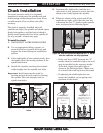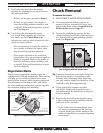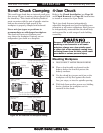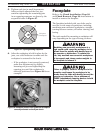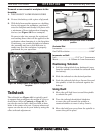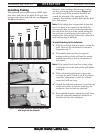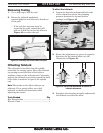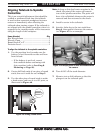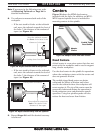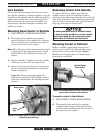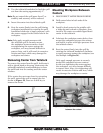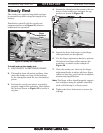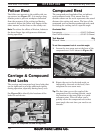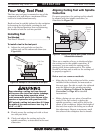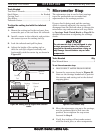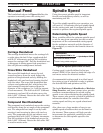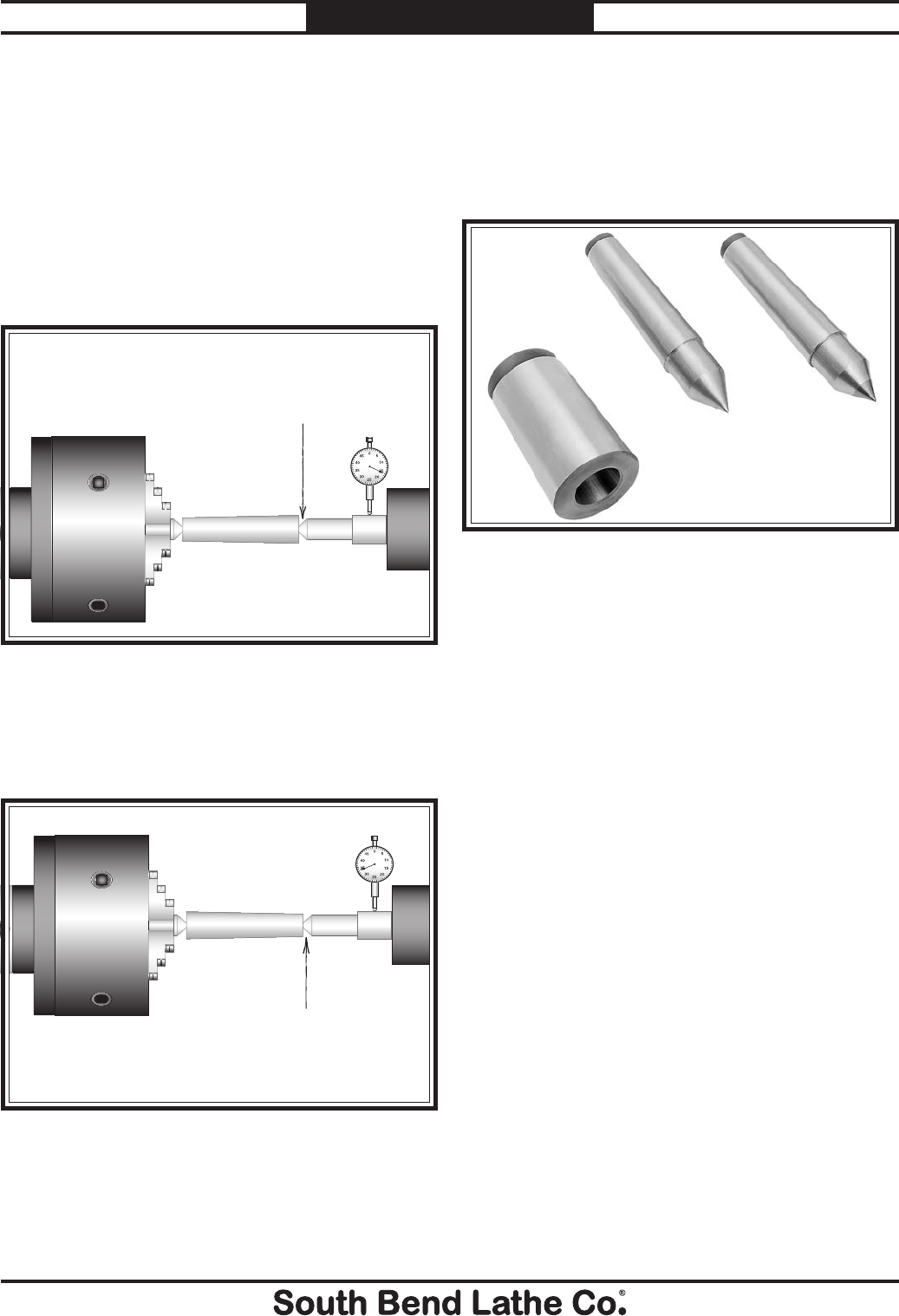
-46-
For Machines Mfg. Since 3/11
Turn-Nado
®
EVS Lathes
OPERATION
Note: If necessary in the following step, refer
to Offsetting Tailstock on Page 44 for
detailed instructions.
8. Use calipers to measure both ends of the
workpiece.
— If the test stock is thicker at the tailstock
end, move the tailstock toward the front of
the lathe
1
⁄2 the distance of the amount of
taper (see Figure 48).
9. Repeat Steps 6–8 until the desired accuracy
is achieved.
Move the tailstock toward
the front of the lathe ½ the
distance of the taper.
Looking down from above.
Figure 48. Adjust tailstock toward the operator.
— If the test stock is thinner at the tailstock
end, move the tailstock toward the back of
the lathe
1
⁄2 the distance of the amount of
taper (see Figure 49).
Move tailstock toward the
back of the lathe ½ the
distance of the taper.
Looking down from above.
Figure 49. Adjust tailstock away from the operator.
Centers
Figure 50 shows the MT#5 dead centers
included with the lathe. In addition, an MT#7–
MT#5 tapered spindle sleeve is included for
mounting centers in the spindle.
Dead Centers
A dead center is a one-piece center that does not
rotate with the workpiece and is used to support
long, slender workpieces
Use the dead center in the spindle for operations
where the workpiece rotates with the center and
does not generate friction.
The carbide-tipped dead center can better
withstand the effects of friction and is best
used in the tailstock where the workpiece will
rotate against it. The tip of the center must be
generously lubricated during the operation to
avoid premature wear and maximize smooth
operation. Using low spindle speeds will also
reduce the heat and wear from friction.
Figure 50. Adapter sleeve and dead centers.
Adapter
Sleeve
Carbide Tipped
Dead Center
Dead
Center



